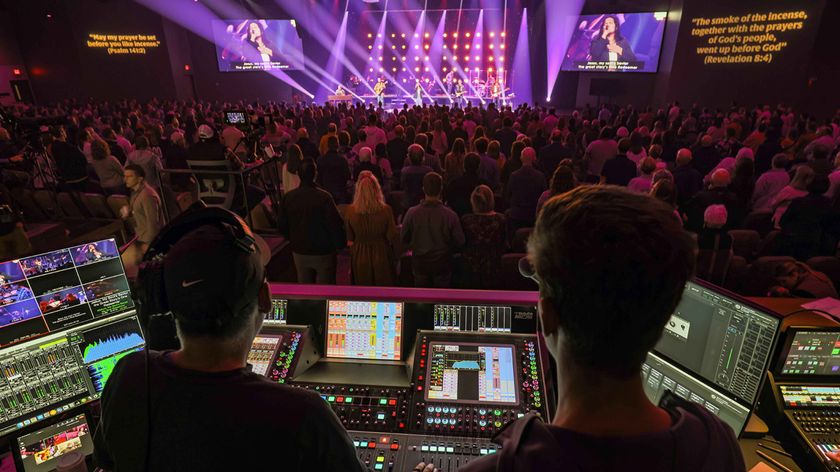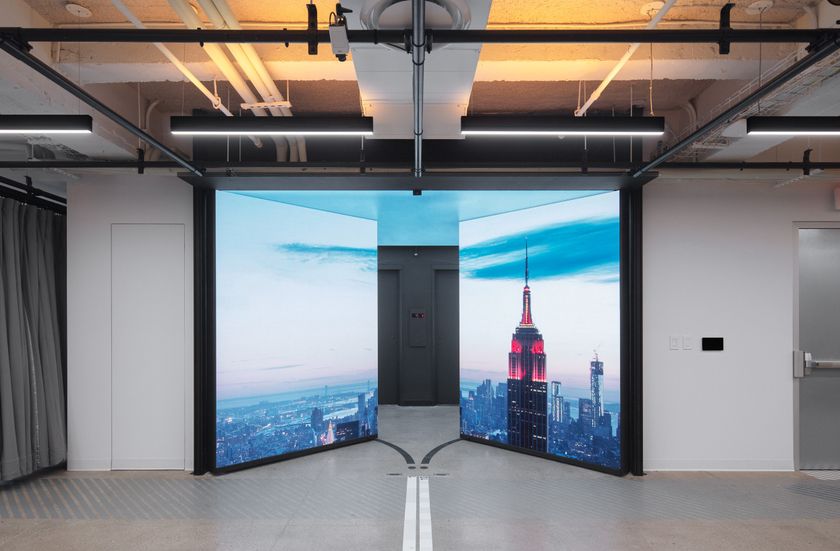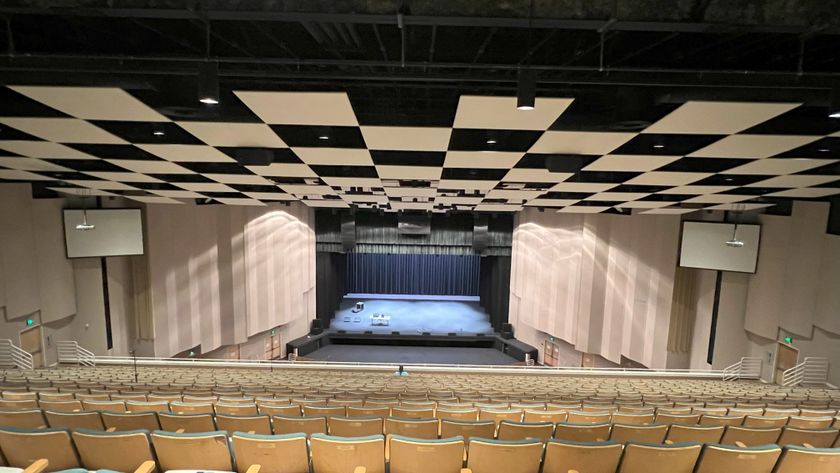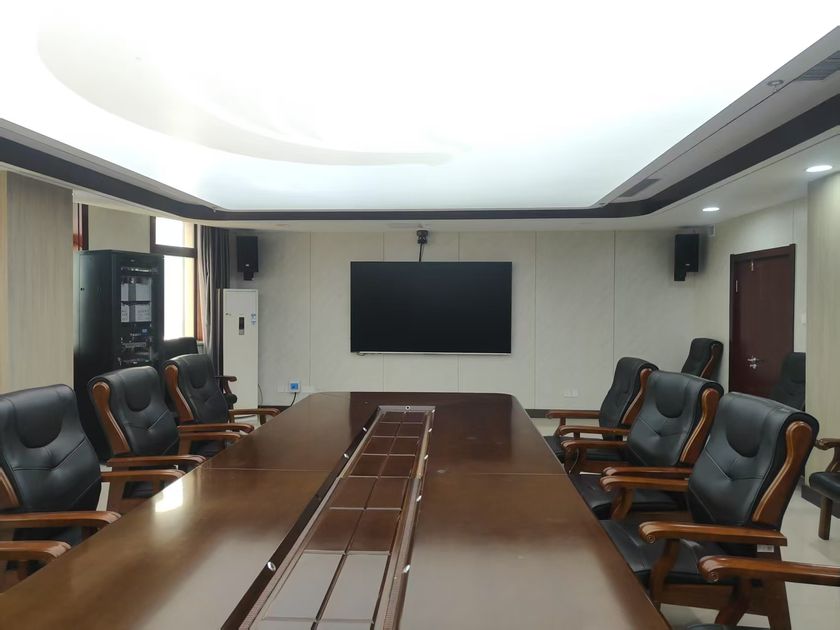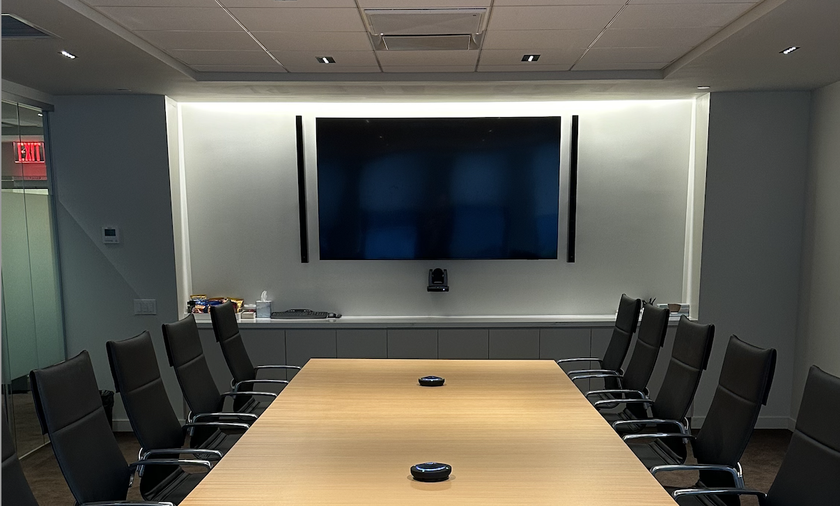I used to love handling events that were broadcast. Network satellite trucks would show up, operated by gruff technicians who didn't like to leave the truck. We'd hand off video and audio signals to them, and mostly see them only when they came inside to pillage the crew's coffee and donut supply. Downlinks worked the same way, except that we'd hook up to a different set of jacks in the truck. Oh, there would be a little troubleshooting of a mix-minus setup, or of signal level mismatches, but they were pretty standard and the broadcast of the event really didn't effect us all that much.
Today, a kid with a Linux t-shirt and two days worth of stubble shows up 30 minutes out from show. He's forgotten the keyboards and mice for the three computers he's brought, and isn't sure about the details of the house internet connection. And he (or she) seems bewildered when they can't find a firewire connection on our DAs. At least we no longer worry about our coffee supply, because these people seem to drink only Red Bull.
But all this comes as a side effect of the fact that we're redefining what it means to "broadcast" an event. And the kid begging for keyboards and mice is because we've redefined who a broadcaster is.
How have the definitions changed?
Everyone's a broadcaster.
When I got started at this, broadcasting, whether on open airwaves or closed circuit networks, was something only the largest and most capable companies did. And, even then, it was reserved for truly important events. Today, corporate networks and the internet have made everyone a broadcaster.
Everything should be broadcast - or at least be set up for it.
In this column, on several occasions, I've bemoaned the demise of the rehearsal. Now let me whine for a moment about the decline of the content decision. In the past, we knew when announcements of importance were going to be made, and we taped or broadcast the event. Today, we record everything - in case something happens. And there are so many varying degrees of "broadcast" now that virtually everything may be used somehow. From traditional broadcast, to cable, to internet streaming, to podcasting - somebody in the organization may want the content.
When in doubt, post it all
The decision to record everything, no matter how insignificant, seems to be followed by the decision to post it all in case somebody wants to see it.
Usually, this means unedited, from soundcheck to walk-out, including coffee breaks.
Well, we're not going to change the fact that broadcasting has changed. Some suggestions for dealing with it:
Develop good, standardized ways to record the required content and deliver it to the client with a minimum of fuss. At a minimum, use a digital tape standard like mini-DV that facilitates easy transfer to the client's computers. But even that can be time consuming, especially if the client doesn't want to handle tape. The next level is simple recording to hard drives - personally, I love LaCie's line of portable firewire drives. they're fast, rugged, and inexpensive. Coupled with a Macbook, recording DV to an external drive is easy, and we can simply hand the drive off to the client at the end. To take it a notch further, companies like RGB Spectrum, QuVis, FFV (and a host of others) now make hard-drive based recorders that are easy to use and integrate into a show system. Many of them even record at multiple resolutions and frame rates, allowing computer visuals, HD and SD to be recorded at native resolution on parallel tracks. My personal favorite is to record DV in Quicktime, which I use in combination with a software package called Wirecast (from Vara Software). It runs on a standard mac, and facilitates both recording and webcasting, all using standard Quicktime and DV formats. But no matter how you set up for it, software or hardware, standardize it.
Have clear policies with regard to recordings and retention. One of the side effects of the recording and broadcast revolution is that my clients often assume that we can deliver a recording - even one they didn't ask for. Lots of this probably comes from the fact that they're working in a medium where recordings are often a by-product. I've had clients ask for files at the end of an event that nobody recorded. I've had clients change their mind when they turned down recording prior to the event. Recently, I've had a client come back after a year and been surprised that I didn't store their recording, even though it was recorded to mini-Dv and the tapes were given to them at the event. I'm no longer surprised at this with this new generation of clients in this brave new world. So we've developed a clear statement in our quotes that we record nothing without explicit direction to do so (and a charge for it) and that we do not retain any recordings after the event is over. Your policies may be different, but I strongly suggest that they be clear, in writing, and enforced with your staff.
Bring extra keyboards and mice. And an emergency 6-pack of Red Bull.
